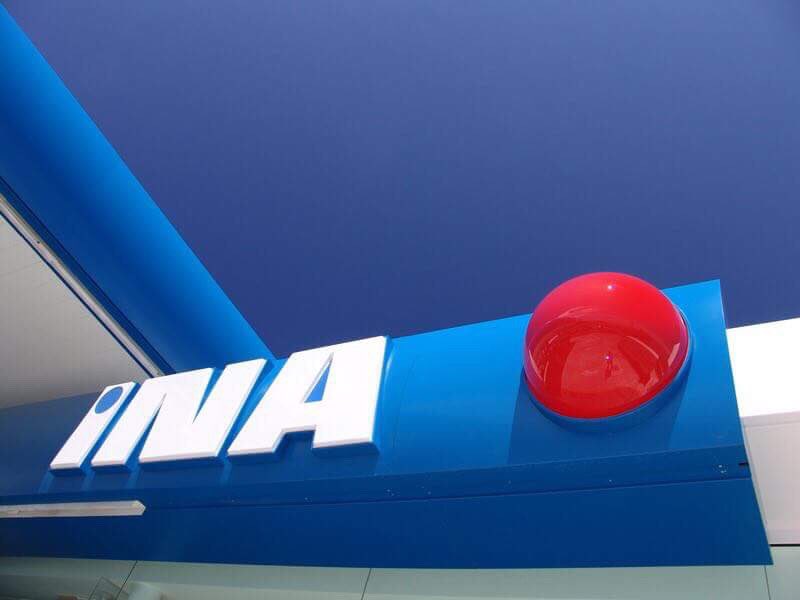
Croatian government's new bid to annul sale of national energy company fails.Continue reading
Andrej Plenkovic (R) during his recent meeting with Viktor Orbán (L) in Prague
Almost no day can pass without the dispute regarding the sale of the INA energy company’s 2009 controlling stake to the Hungarian oil giant MOL surfacing in the Croatian press.
Prime Minister Andrej Plenkovic has made it his signature strategic goal to re-nationalize INA, as he argues that its sale was realized amid questionable circumstances, suggesting even state-sponsored corruption. He went as far as bringing a court-case against Zsolt Hernádi, Hungarian CEO of MOL, which resulted in a ruling against the Hungarian businessman, who, according to the Croatian court, was guilty of bribing former Croatian prime minister Ivo Sanader.
Since then the Croatian state had lost two major court cases against MOL, one in the US, another, only this month, in front of Switzerland’s Supreme Court. In both case the judges have ruled in favor of the Hungarian party, ordering Croatia to pay expenses and damages.
However, what started as a business dispute is gradually getting uglier with offensive political and even nationalist undertones. Croatian politicians are now publicly and casually hurling abuse and unsubstantiated allegations at the Hungarian government as well as business community. Fears are that this attitude could whip up anti-Hungarian sentiments among the Croatian public. The country’s media, especially the ones aligned with Plenkovic’s rhetoric, are also lining up local experts predictably coming to the conclusion that MOL’s stake in the Croatian energy giant is damaging the country’s economy.
Economist Boris Podobnik, for instance, speaking to the Croatian newsportal Index.hr was recently one of those who have readily provided their expertise by claiming that the closure of the Rijeka (Fiume) oil refinery for maintenance is a calculated move by the Hungarian partner, enabling them to buy diesel for some “market price” from the Croatian side. He, however, did not specify any further as how the Hungarian company should benefit from scheduling the maintenance at this particular moment, or why would this be more damaging to Croatian interests than performing the task at any other date.
Nikola Grmoja of the Most parliamentary party went even further. As reported on the Jutarnij.hr newsportal’s pages, he claimed in parliament that “What you cannot say, and I can, is that Hungary, Hungarian intelligence services and Hungarian institutions are behind MOL”. Grmoja is factually wrong as the Hungarian state owns only 5.2 percent of MOL, while international investors have over 27 percent of the shares. However, as is apparent, Croatian papers will readily publish such misinformation without commentary, creating an impression that Grmoja’s reference to some Hungarian secret service conspiracy against Croatia is based on facts.
Stipo Mlinarić of the ultra-nationalist Homeland Movement, on the other hand, has joined the queue of politicians accusing the Hungarian prime minister of territotiral revisionism, that is, of trying to annex parts of Croatia to Hungary. In a speech against Croatia’s involvement in the war in Ukraine (not related to INA) he said that “We live in very thankless times. Milorad Dodik reigns in the Serbian part of Bosnia, in a country built on genocide, Bosniaks overvote and systematically destroy the Croatian corps with the electoral law, Orban says that Baranja county is his, the new Italian prime minister says that Istria and Dalmatia are theirs. From Serbia, they tell us that we are Ustashas.”
Mlinaric’s entirely misleading claim is based on a statement made by Viktor Orbán in 2019 during the opening of a Hungarian Cultural Center in Croatia with his counterpart, Andrej Plenkovic. “If anyone asks Croatians living in that part (Baranja) they will say that they live on the Northern edge of Croatia, while if anyone asks Hungarians living in Baranya County they will say they live on the Southern edge of Hungary. They are people and communities who believe that they live on the edge of something, and so they will never be successful; only those can be successful who believe that where they live is the center of the world,” Mr. Orbán stated.
Over 450.000 Hungarians spend their summer holidays in Croatia annually, and trade between the two countries surpasses 2 billion dollars. The damaging side-effect of Croatian politicians of all sides using the Hungarian card to settle scores could not only damage bilateral relations between the two neighboring countries, but could also shake business confidence of international entrepreneurs hoping to make a safe investment in the Balkan country. This would do significantly more damage to the Croatian economy than that any of the real, or supposed, problems that the 2009 sale of INA to MOL has caused in the past.
Featured Image: Facebook Andrej Plenkovic